
Theory of Digital Design in Architecture

DigitalFutures open lecture series focuses on the many developments in architecture in the midst of digital transformation, and is organized by the College of Architecture and Urban Planning (CAUP) of Tongji University in collaboration with universities, firms and research institutions around the world. The courses encourage innovation, collaboration and exchange, and focus on the scientific study of digital design theory, technology and methods.
This series of global doctoral shared courses, Theory of Digital Design in Architecture, invites international leading scholars and architects in the field of digital architecture to give a 6-day academic lecture. The lectures will be held from June 17th to June 22nd, with two sessions each day: 8:00-10:15 (UTC+8) and 19:00-21:25 (UTC+8). We welcome everyone to join and participate!
Evening Lecture Series
Lecture 01
June 18 19:00-21:15(UTC-+8)
Zoom ID:882 4358 1786 Password:127837
Certain Measures:Data,Media,Worlds
Andrew Witt
Harvard GSD
·Theme ·
Paradigm shifts in ML, AI, and ultimately mathematics are allowing architects to tackle complex systemic and trans-scalar problems through the lens of data. Beyond the design possibilities such shifts afford, as the disciplinary boundaries of architecture mutate they demand a rethinking of what a design office can be. Certain Measures is a studio that takes computation, ML, and AI as fundamental media to design a shared world in which humans, machines, and nature interact through data. Through a series of case studies, as well as a critical and historical framework drawn from his book Formulations: Architecture, Mathematics, Culture, Witt will share how intersecting practices of computation, fiction, data visualization, and architecture can multiply the possibilities of design to imagine a more verdant tomorrow.
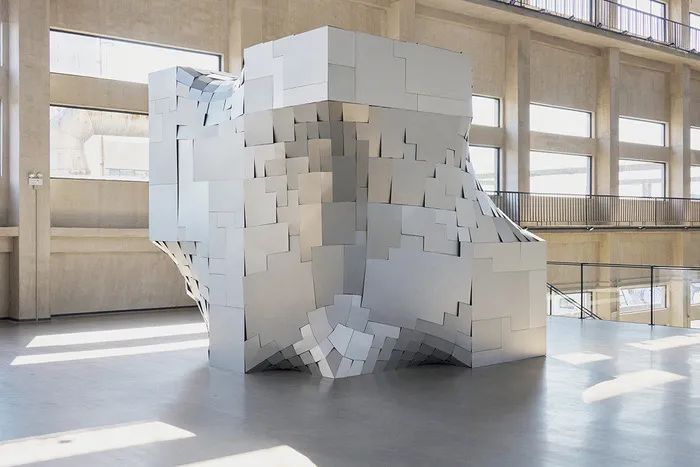
Andrew Witt Andrew Witt is an Associate Professor in Practice at the Harvard Graduate School of Design, teaching and researching on the relationship of geometry, data, AI, and machines to architecture, design, and culture. Trained in both architecture and mathematics, he has a particular interest in a technically synthetic and logically rigorous approach to form. He is also co-founder, with Tobias Nolte, of Certain Measures, a Boston/Berlin-based studio that combines design and data for systemic and scalable approaches to spatial problems. The work of Certain Measures is in the permanent collection of the Centre Pompidou, and has been exhibited at the Pompidou, the Barbican Centre, the Museum of the Future, the Canadian Centre for Architecture, among others.
Lecture 02
June 18 19:00-21:15(UTC-+8)
Zoom ID:882 4358 1786Password:127837
Generative or Biological:
Models of Architecture
Shiqiao Li
UVa
·Theme ·
Morphology and typology are what architecture traditionally takes from biology, a sort of biomimicry. Big Data or Big Model has enabled us to approximate deeper structures of biology through algorithms. Yet, data-driven design and manufacturing map onto some aspects of biological life (the exceedingly large number of atoms and molecules, self-reproducibility) and not others (the second law of thermodynamics); ironically, this digital mimicking of biological life threatens to accelerate the process of life systems on earth towards entropy. Should we reintroduce the “noise of life” into data-driven processes so as to think and produce architecture in tune with biological laws? This lecture will examine some connections between architecture and foundational biological concepts and introduce the results of a design studio at the University of Virginia.
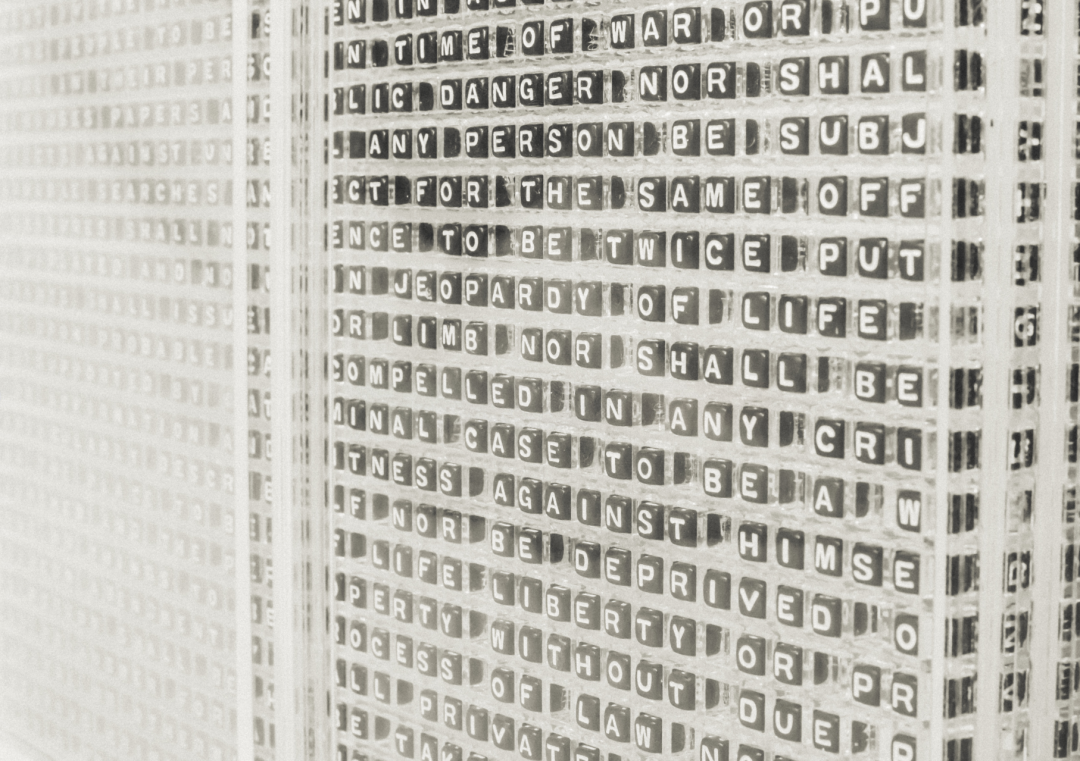
Book of Rights by Christopher MacDonnell
(copyright Christopher MacDonnell)
Shiqiao Li Shiqiao Li, he researches in the area of urban and architectural theory in writing and design. Published in Power and Virtue, Architecture and Modernization, Kowloon Cultural District (with Esther Lorenz), Understanding the Chinese City, journal articles, as well as delivered through keynote and guest lectures around the world, his contribution to urban and architectural theory makes evident the operations of culturally and intellectually constructed values instrumental to the production of cities and architecture. His research enlarges thinking spaces within which more sensible and effective actions in the constructed environment can be formulated. He seek pathways of intellectual understanding and response in architecture that aim to restore our pervasively technologized and ecologically strained world to its fertile functions.
Lecture 03
June 19 19:00-21:15(UTC-+8)
Zoom ID:882 4358 1786 Password:127837
The End of Manners
Alejandro zaera-Polo
AZPML
·Theme ·
The lecture will try to articulate the implications that certain contemporary cultural and political processes have on the discipline. And viceversa: how the discipline could acquire agency in the face of certain cultural processes such as post-truth, populism and identity politics, from a reorientation towards more technical practices and post-human sensibilities. COVID 19 and the war in Ukraine become the milestones that mark the end of the postmodern/poststructuralist culture that has been prevalent since the 1970s in architecture and other artistic disciplines.
AZPML's work of the past few years will be presented not so much as an example, but as an index of the changes to come.
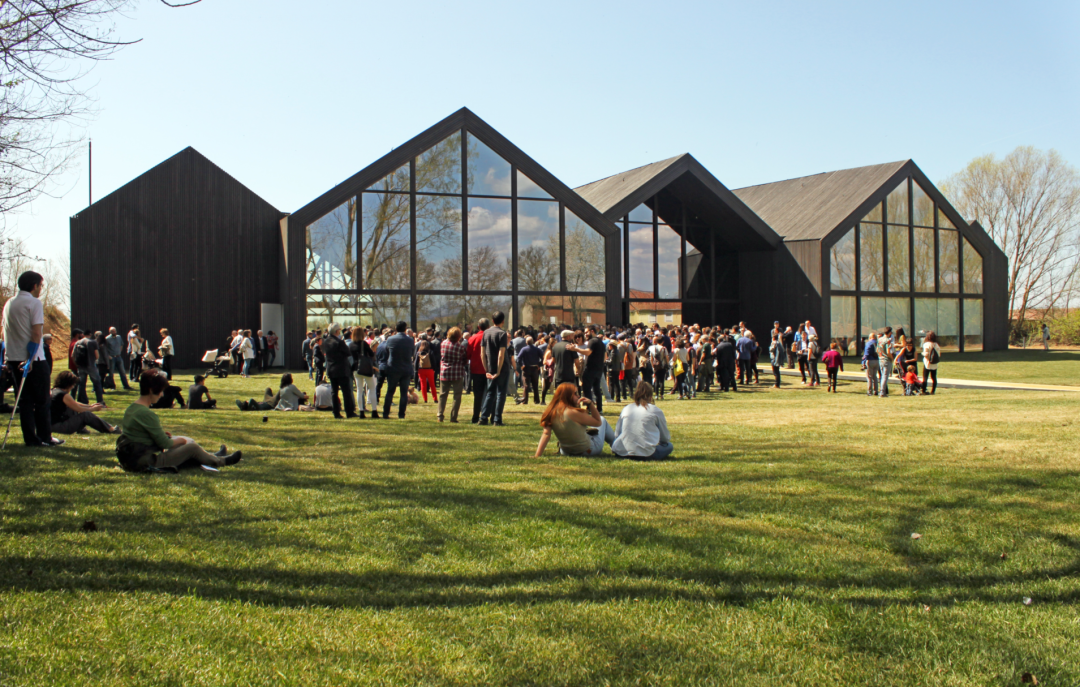
Alejandro zaera-Polo Alejandro graduated from the School of Architecture at the Polytechnic University of Madrid and later received a master's degree from Harvard University. The work combines architectural practice and theoretical research, and combines architecture, urban design and landscape design. He worked at OMA before founding FOA and forming AZPML. Taught at AA, TUD, Yale; He served as Dean of the School of Architecture at Princeton University and as a guest judge at Columbia University and UCLA. He is now a tenured professor at Princeton University.
Lecture 04
June 20 19:00-21:15(UTC-+8)
Zoom ID:882 4358 1786 Password:127837
Rethinking Architecture:Interrelations between Biology and Building
Achim Menges
ICD Stuttgart
·Theme ·
Inspiration found in nature, together with advances in computational design and robotic fabrication, challenge existing approaches in architecture in a surprising manner, or even point out completely new possibilities for design and construction. Biology offers an almost inexhaustible reservoir of principles of form, structure and process that can be transferred to architecture. At the same time, computation profoundly transforms the building industry.
The lecture will showcase ways of tapping the full potential of digital technologies in architecture and construction through inspiration by nature, in order to go beyond the mere digitalization of established planning procedures and the automation of existing building processes towards truly integrative computational design and construction for future-proof architecture.
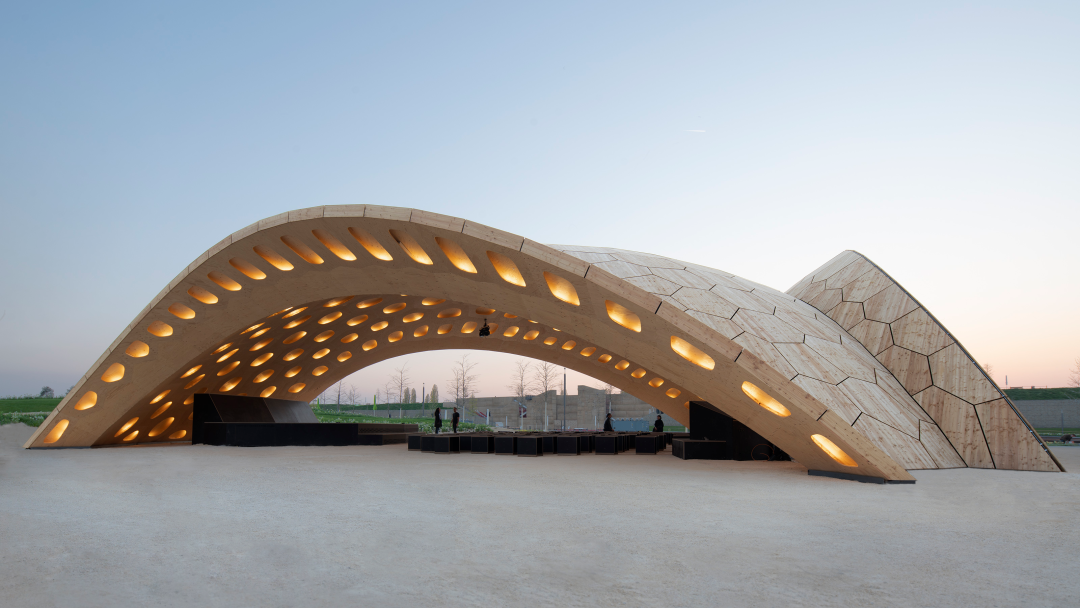
Achim Menges Achim Menges is a registered architect in Frankfurt and full professor at the University of Stuttgart, where he is the founding director of the Institute for Computational Design and Construction (ICD) and the director of the Cluster of Excellence Integrative Computational Design and Construction for Architecture (IntCDC). In addition, he has been Visiting Professor in Architecture at Harvard University’s Graduate School of Design and held multiple other visiting professorships in Europe and the United States. He graduated with honours from the Architectural Association, AA School of Architecture in London, where he subsequently taught as Studio Master and Unit Master in the AA Graduate School and the AA Diploma School.
Lecture 05
June 21 19:00-21:15(UTC-+8)
Zoom ID:882 4358 1786 Password:127837
Dwelling in the Digital Age: Imagination,Experience, and Subjectivity
Antoine Picon
Harvard GSD
·Theme ·
Dwelling appears as a complex entanglement of dreams and realities, mental representations, and concrete practices. Here the question of its evolution in the digital age is approached at three levels. Firstly, what are the changes that it brings to the concrete experience of the built environment that have accompanied the rise of digital technologies? The Covid19 pandemic has contributed to reveal some of them, but the full picture is still far from clear. Secondly, how are these changes related to this different understanding of the human that is often dubbed as a transition towards a ‘posthuman’ condition? Thirdly, the least evident to address: will these shifts lead to the emergence of new spatial organizations and programs? Central to the argument which will be developed is that there is a deep relation between dwelling and the constitution of human subjectivity. Dwelling in the digital age is thus inseparable from the question of the evolution of what it means to be human in our contemporary societies.
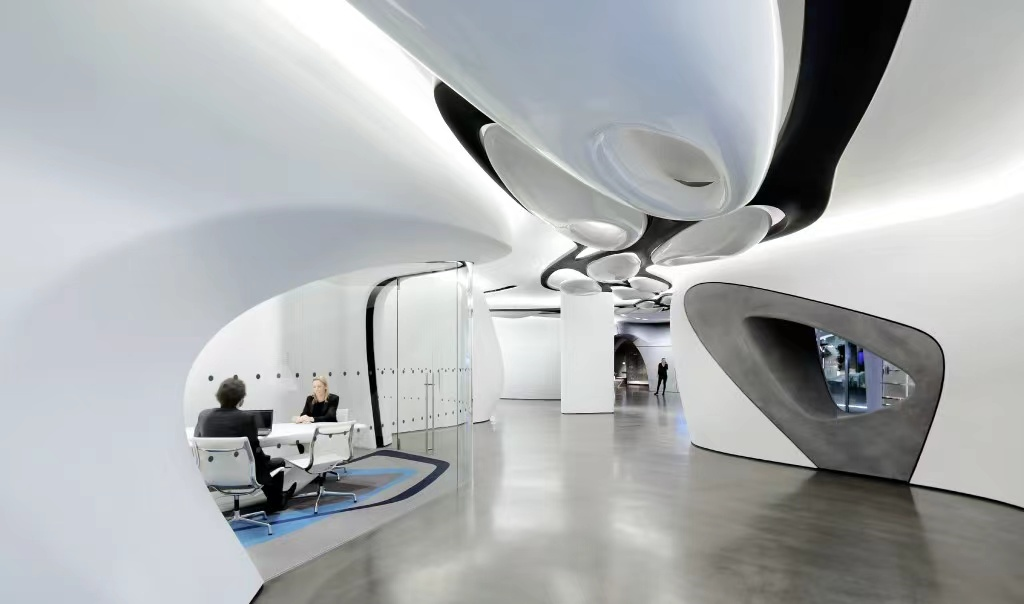
Antoine Picon Trained as an engineer, architect and historian, Antoine Picon is professor of the history of architecture and technology at Harvard Graduate School of Design. He is also the chairman of the Fondation Le Corbusier. He has published extensively on the relations between technological change, society, architecture and the city. Among his books are Digital Culture in Architecture: An Introduction for the Design Professions (2010), Ornament: The Politics of Architecture and Subjectivity (2013), Smart Cities: A Spatialized Intelligence (2015), The Materiality of Architecture (2021).
Lecture 06
June 22 19:00-21:15(UTC-+8)
Zoom ID:882 4358 1786 Password:127837
On the New Humanism of Artificial Intelligence
Mario Carpo
UCL
·Theme ·
this lecture will discuss some aspects of the current use of machine learning technologies in the visual arts, and suggest that GAN generated images, or images generated by generative AI, are inducing a surreptitious revival of some ancestral (and long disparaged) categories of western art, such as imitation, and style.
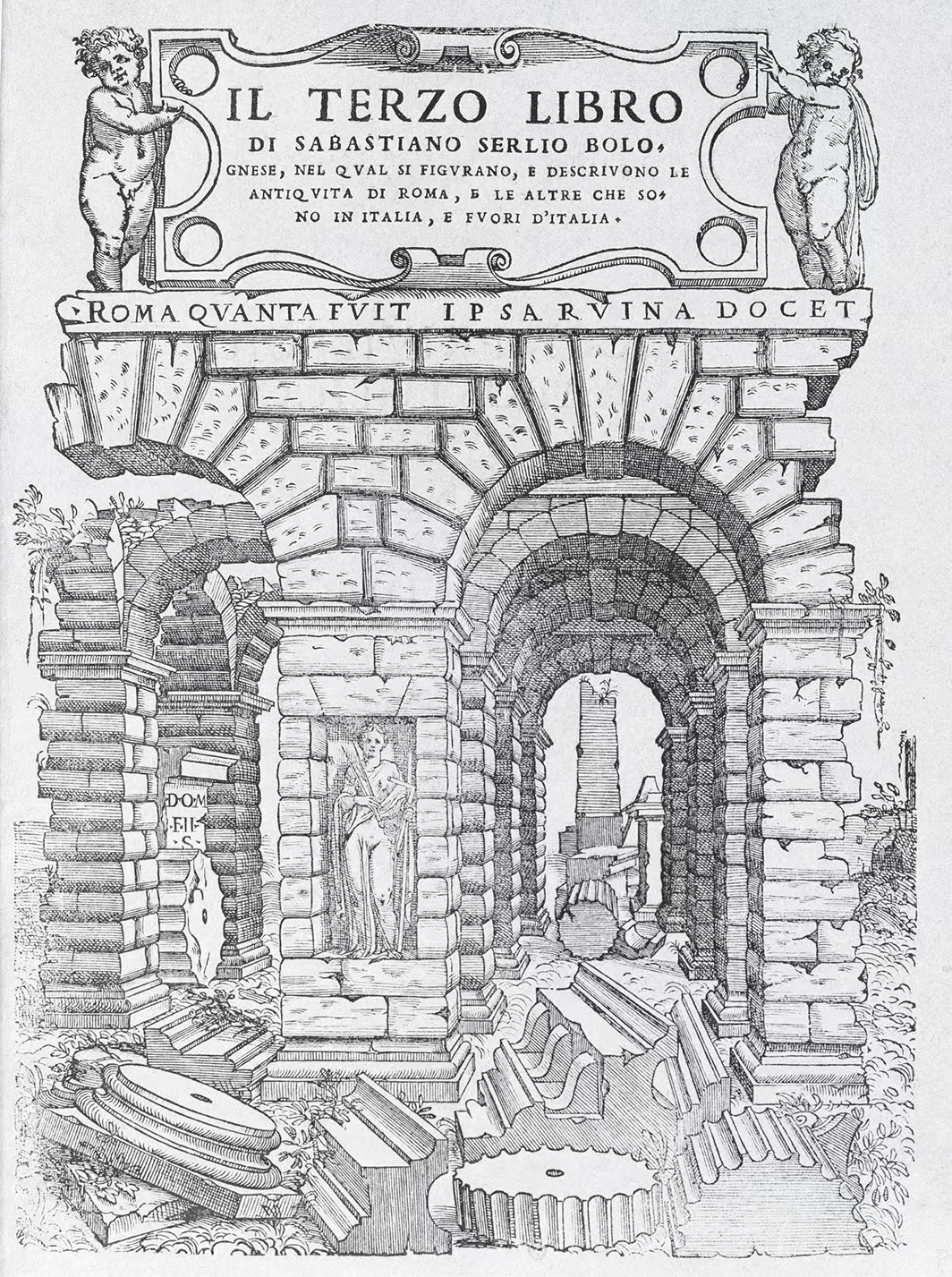
Page from Sebastiano Serlio’s On Antiquities (Francesco Marcolini da Forli, 1540).
Mario Carpo Mario Carpo is an architectural historian and critic, currently the Reyner Banham Professor of Architectural History and Theory at the Bartlett, University College London and the Professor of Architectural Theory at the Institute of Architecture of the University of Applied Arts (die Angewandte) in Vienna. His research and publications focus on history of early modern architecture and on the theory and criticism of contemporary design and technology.
Morning Lecture Series
Lecture 01~06
June 17~22 8:00-10:15(UTC-+8)
Zoom ID:895 0243 4442 Password:000480
Camouflage Revisited
Neil Leach
Tongji University
·Theme ·
Reality
Aestheticisation
Mimesis
Life/Death
Melancholia
Belonging
What can theory tell us about the advanced technological world in which we operate today? The series revisits two seminal books on architectural theory, The Anaesthetics of Architecture (MIT, 1999) and Camouflage (MIT, 2006), which engage with the work of Adorno, Bataille, Baudrillard, Benjamin, Butler, Deleuze, Derrida, Freud, Kristeva, Lacan and Zizek. In so doing it seeks to open up fresh insights into contemporary debates about artificial intelligence, neuroscience, virtual reality, interactive design and other concerns.
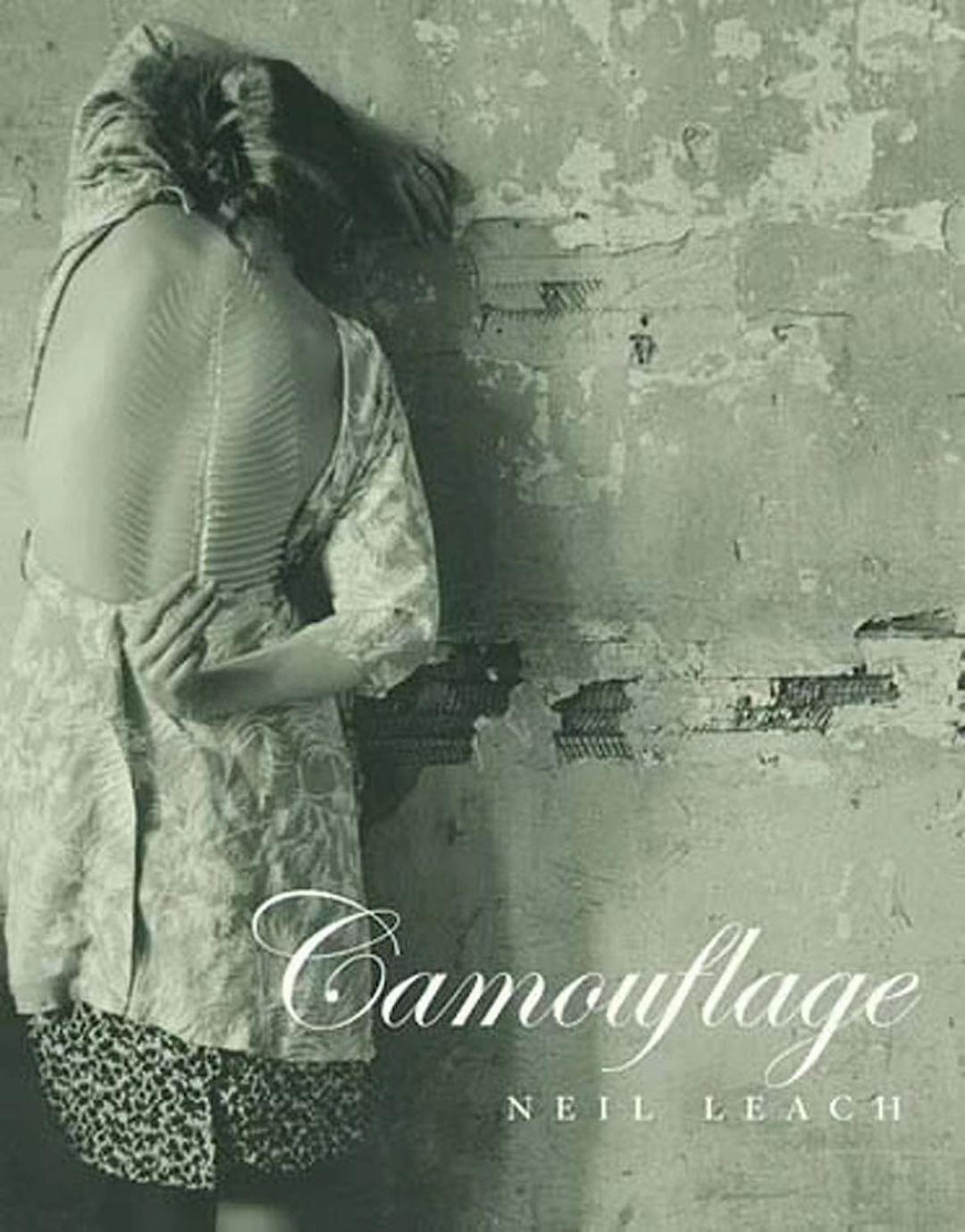
@Camouflage
Neil Leach Neil Leach is an architect and theorist. He is currently a visiting professor at Tongji and FIU University. He has worked on NASA's Mars project as a researcher and has taught at the Southern California Institute of Architecture, AA , Harvard GSD, Cornell University, Columbia University, Desso School of Architecture, Royal Danish Academy of Fine Arts, Catalan Institute of Advanced Architecture, Catalan International University, University of Bath, University of Brighton, University of Nottingham and UCL. He holds a Master of Architecture from the University of Cambridge and a PhD in Architectural Theory from the University of Nottingham.
Architectural DigitalFUTURES
Architectural DigitalFUTURES is launched by College of Architecture and Urban Planning(CAUP), Tongji University andShanghai Digital Architecture Fabrication Technology Center (SFAB) in 2011. International Union ot Architects (UIA),Architectural Society of China (ASC), National Engineering Technology Research Centelfor Prefabrication Construction in Civil Engineering, and The Architectural Society of Shanghai ChinaIASSC) collaborate with alobal renowned scholars, architects, desianers, enterprises and academic mediain this field to establish an online and offline integrated educational platform relying onDigitalFUTURES. The events are consisting of lectures, conferences, workshops and exhibitions, etcNowadays, Architectural DigitalFUTURES as a global architecture exchange community, with the platform,www.digitalfutures.world,encourages the inheritance and innovation, collaboration and' communicationof global knowledge in architecture and emphasizes scientific research about digital desian theorytechnology and artificial intelligence algorithms, robotic fabrication, etc. in the field of architecture anabuilt environment.
 ABOUT US
ABOUT US




